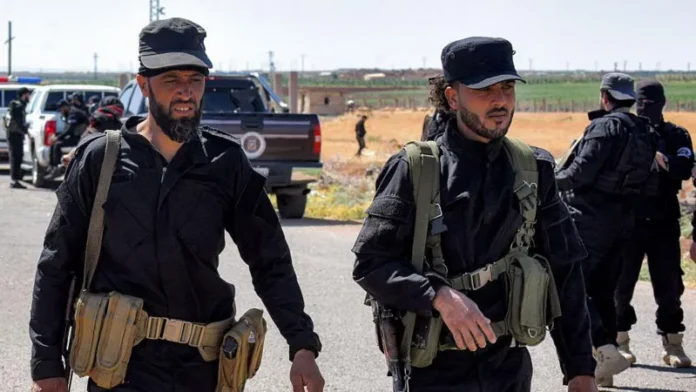SUWEIDA, SYRIA — Dozens of people have been killed and more than 200 injured in deadly sectarian clashes between Druze militias and Sunni Bedouin tribal fighters in the southern Syrian province of Suweida, local media and monitoring groups reported on Monday.
The violence erupted on Sunday in the predominantly Druze city of Suweida, two days after a Druze merchant was reportedly abducted on the highway to Damascus. In response, Druze fighters allegedly set up roadblocks and detained several members of local Bedouin tribes, sparking an escalation in armed confrontations.
The Syrian interior ministry confirmed the deployment of security forces in an attempt to restore calm, but fighting continued on Monday, particularly in the western countryside of Suweida. Local sources described scenes of widespread destruction and chaos, with small arms fire and shelling reported in multiple districts.
Suwayda 24, a local activist-run news outlet, reported “dozens” of fatalities and more than 200 people wounded. The UK-based Syrian Observatory for Human Rights (SOHR) confirmed dozens had died, including several children, Bedouin fighters, and members of Syria’s internal security forces.
The interior ministry placed the official death toll at 30 as of Monday morning, though that figure is expected to rise. Hospitals in Suweida have reportedly been overwhelmed by the number of casualties, with local appeals for medical supplies circulating on social media.
The violence marks the most severe sectarian unrest in Syria since Islamist-led rebel groups overthrew President Bashar al-Assad in December, ending more than two decades of his rule.
The collapse of Assad’s regime has raised fears among Syria’s many religious and ethnic minorities, including the Druze, who follow a monotheistic religion derived from Shia Islam with distinct cultural and spiritual traditions.
“We are deeply concerned about the safety of all civilians caught in this violence,” said a spokesperson from the United Nations Special Envoy for Syria. “All sides must exercise restraint and prioritize dialogue over armed confrontation.”
Community leaders from both Druze and Bedouin tribes have reportedly begun emergency negotiations to halt the fighting, but mistrust and grievances—some dating back decades—remain deep.
While the central government in Damascus has largely lost control of the southern region, Suweida had until now been relatively insulated from the worst of Syria’s years-long conflict. The recent eruption of sectarian violence underscores the fragility of the post-Assad order and the growing power vacuum in provincial areas.
Security forces remain on high alert as local authorities call for calm. However, with tensions simmering and long-standing ethnic divides resurfacing, residents fear that more bloodshed may lie ahead.

